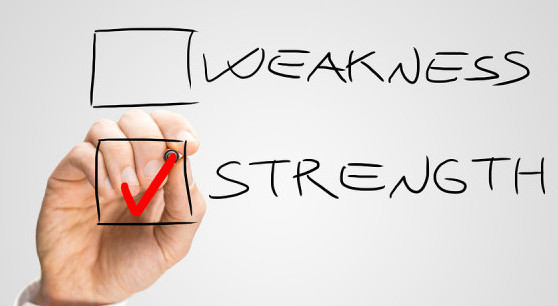Most of us have a poor sense of our talents and strengths yet are acutely aware of our weaknesses and flaws. Why is that? I’ll bet if I asked you to name three things you excel at and three things you struggle with, you’d have an easier time naming your problem areas.
“Most Americans do not know what their strengths are. When you ask them, they look at you with a blank stare, or they respond in terms of subject knowledge, which is the wrong answer.” —Peter Drucker, management expert
Throughout our education and subsequent careers, there’s often been much more attention paid to how to improve and fix our shortcomings rather than expand our strengths. Parents, teachers and managers are well versed in spotting deficits. In fact, most people — partners and spouses included — consider it their duty to point out our weaknesses in the hope of helping us improve.
As a result, most of us have become experts in our weaknesses and spend our lives trying to fix these flaws, or accept them as permanent character defects.
Consequently, our strengths lie dormant and neglected. The research, however, is clear: we grow and develop by focusing on our strengths, rather than trying to correct faults.
Over the last decade, coaching and leadership professionals have been placing greater emphasis on developing personal strengths. The goal is to help individuals work with what they have and build on their natural talents. More executives and managers are starting to recognize that company success depends on leveraging what already works instead of trying to fix what’s broken.
In my previous posts here and here, I shared with you research from the Gallup surveys on how managers who were most effective used a strengths-based approach to leading and motivating their people. When employees know and use their strengths, they are more engaged, have higher performance and are less likely to leave their company.
A manager’s approach to strengths has a profound impact on engagement, and that engagement has a profound impact on just about everything that matters to an organization’s long-term viability. ~ Amy Adkins, Gallup Business Journal, Only One in 10 People Possess the Talent to Manage
You can’t effectively use a strengths-based approach unless you know your own strengths as well. Have you taken an online assessment yet? I’ve found that those managers who work with a coach are more familiar with their own talents and then recognize strengths in others more readily.
What do you think? I’d love to hear from you. You can contact me here or on LinkedIn.

Did You Enjoy This Article?
Join thousands of other smart business owners like yourself & get our Proffittable Times newsletter.
It's filled with actionable content you can apply immediately.
Sign up now to get started!
– Coach Nancy










